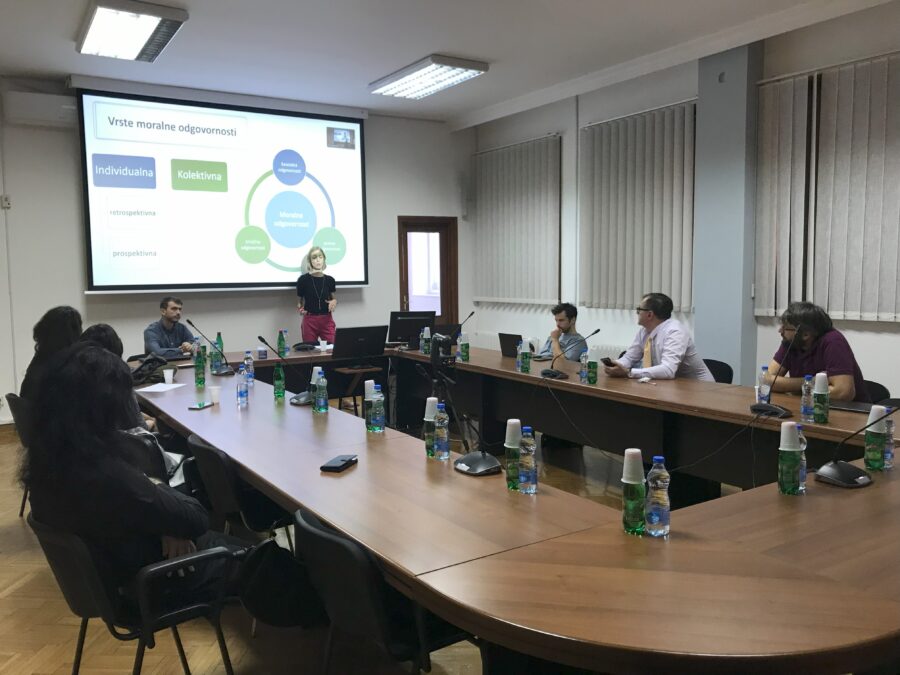Doctoral candidate Marina Budić concluded in her lecture titled “Moral Responsibility of Individuals with Mental Disorders: Ethical Consideration” that the moral community includes neurotypical individuals, individuals with high-functioning autism, and individuals with mild intellectual disabilities.
In the lecture held on September 27th in the Grand Hall of the Institute of Social Sciences, a researcher-collaborator at the IDN and a doctoral candidate in philosophy at the Faculty of Philosophy, Marina Budić attempted to address the ethical and philosophical challenges of dilemmas related to attributing moral responsibility to individuals with mental disorders. Do individuals with mental disorders belong to the moral community, and can they be considered morally responsible for their actions despite their mental disorders? Is a psychopath (antisocial personality disorder) part of the moral community? These are just some of the tough philosophical questions to which the researcher provided comprehensive and reasoned answers supported by empirical research.
The moral community consists of moral agents, meaning individuals who are morally responsible. Moral responsibility requires both rational and motivational components. What would be lacking in individuals outside the moral community is the ability to participate in moral conversations and control their behavior. As demonstrated in the presentation by the doctoral candidate, criminal behavior is not associated with individuals with autism and individuals with mild intellectual disabilities, although such a connection may exist in the case of psychopathy.
Representatives of the first two groups are often victims of violence and injustice. Psychopaths are responsible in terms of imputability. Psychopaths completely disregard the moral community. They either do not understand or do not care about the relationships that exist within the moral community. It can be added that individuals with autism and mild intellectual disabilities are on the fringes of the moral community, while children, individuals with dementia, and psychopaths remain outside the community.
Marina Budić’s lecture is the fifth in a series of seminars titled “Philosophy and Psychiatry” at the Center for Philosophy at the Institute of Social Sciences. In these seminars, we aim to provide an opportunity for younger colleagues and doctoral students to present their work and improve it through discussions that follow each lecture.

